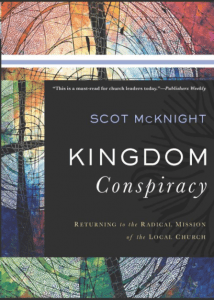Paul Louis Metzger, in Leadership, writes about “biblical justice” and defines it like this:
Biblical justice involves making individuals, communities, and the cosmos whole, by upholding both goodness and impartiality. It stands at the center of true religion, according to James, who says that the kind of “religion that God our Father accepts as pure and faultless is this: to look after orphans and widows in their distress and to keep oneself from being polluted by the world” (James 1:27). Earlier Scripture says, “The righteous care about justice for the poor, but the wicked have no such concern” (Prov. 29:7).
 I have a thing for this term justice so let me give a brief on the term:
I have a thing for this term justice so let me give a brief on the term:
First, there is a secular meaning to this term. In this case, justice means conditions and laws and behaviors that conform to the laws of the land. The term “justice” sometimes is used in this sense when someone is “brought to justice.” Too many Christians today are talking about biblical “justice” when they mean Western American ideals for society. Biblical justice overlaps with this secular sense but it is profoundly rooted in another source.
In this sense, law is secular — established by principles independent of faith and revelation — and justice are those behaviors and conditions that conform to such law.
Pay attention to how people use “justice” or “social justice”. What standard are they using? What do they mean when they are using these terms?
Second, there is a Torah-shaped meaning of this term. Let’s call this the “Old Testament” sense. Here the Hebrew word “justice” (tsedeq, etc) refers to behaviors and conditions that conform to the Torah, to the revelation of God in Old Testament Law and Prophets. Fundamentally, justice means something that embodies what the Torah teaches.
Third, there is a Jesus-shaped meaning of this term: Things change with Jesus because the Torah shifts or is completed. Now a Jesus-shaped justice means behaviors and conditions that conform to the will of God as taught, embodied and enacted by Jesus. In other words, true justice is to love God and to love others as ourselves, or it is to live out the Sermon on the Mount, or it is to follow Jesus, or it is to abide in Jesus. The earliest Christians reshaped this teaching by connecting it to the Holy Spirit: so that justice means living in the Spirit, and one thinks here of the fruit of the Spirit.
Then Paul radically re-emphasizes something: we can only be truly just, we can only truly to conform to the will of God as taught by Jesus … well, we can’t. Only Jesus did this, so we are to trust in him and to be joined to him and to live out his life in our lives.
And in the Israel and Jesus forms of justice, the community in mind is the People of God — Israel and the Church.
Behind all three of them is that justice is relational: it describes one’s relationship to a standard. It all depends on the standard. The word justice assumes a standard by which justice can be measured.
For a Christian, there is only one standard: Jesus. The US Constitution, one of the more common standards in our culture, is a pale reflection of Jesus’ manifesto for righteousness/justice, and we would do well to remind ourselves of this often.
One of the most important corollaries: as followers of Jesus we can never succumb to letting the laws of the land determine what justice means.











